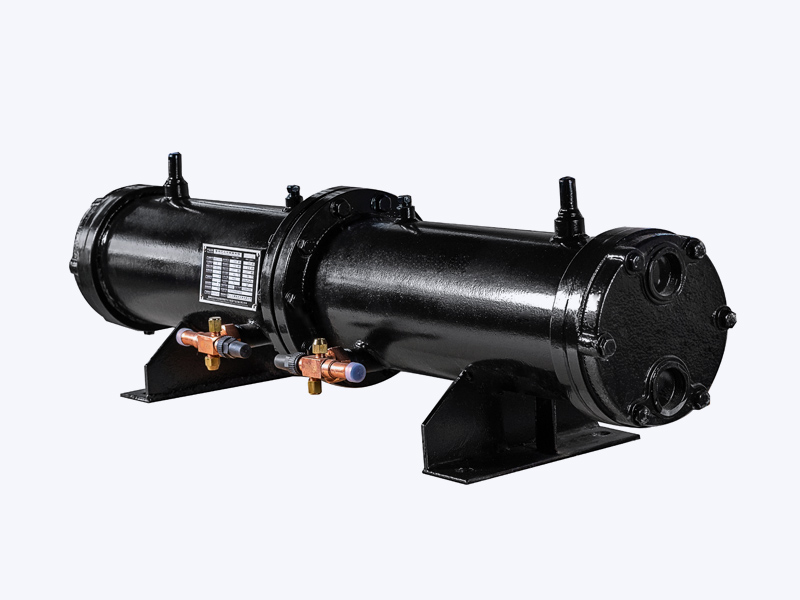Water quality and treatment are of paramount importance in a water-cooled condenser system for several reasons:
1.Enhanced Heat Transfer Efficiency: Maintaining high water quality is essential for optimizing heat transfer efficiency in water-cooled condenser systems. Contaminants like scale, sediment, and organic matter act as insulators, reducing the ability of the heat exchanger surfaces to effectively transfer heat between the refrigerant and cooling water. This inefficiency can result in higher energy consumption and reduced system performance.
2.Corrosion Mitigation: Water-cooled condenser systems often consist of various metallic components, including heat exchangers, pipes, and valves. Low water quality with high levels of impurities, dissolved gases, or corrosive elements can promote corrosion, leading to equipment degradation and potential leaks. A well-maintained water treatment program helps prevent corrosion, preserving the integrity of system components.
3.Scale Control: Hard water containing calcium and magnesium ions can lead to the formation of scale deposits on heat exchange surfaces. These deposits restrict water flow and impede heat transfer, which necessitates increased energy input to maintain desired operating temperatures. Effective water treatment programs include scale inhibitors to mitigate this issue.
4.Microbial Growth Management: Inadequate water quality and insufficient biocide treatment can create an environment conducive to microbial growth within the cooling system. Microorganisms such as bacteria, algae, and fungi can form biofilms on surfaces and clog system components. These biofilms not only reduce heat transfer efficiency but also compromise system hygiene and air quality in HVAC applications.
5.Cost Efficiency: While implementing a water treatment program incurs some costs, it is a cost-effective approach in the long run. Proper water treatment minimizes the need for costly maintenance, repairs, and system downtime associated with fouling, scaling, or corrosion. Additionally, it helps maintain the system's energy efficiency, reducing operational costs.
6.Energy Savings: Water quality plays a direct role in the energy efficiency of the cooling system. Clean water with minimal fouling and scaling allows the system to operate at its designed efficiency. Conversely, systems with compromised water quality must work harder to achieve the same cooling capacity, resulting in increased energy consumption and operational expenses.
7.Extended Equipment Lifespan: High-quality water treatment can extend the lifespan of critical system components. By preventing corrosion and minimizing the buildup of scale and deposits, equipment like heat exchangers, pumps, and valves are less susceptible to wear and tear. This leads to longer service life, reducing capital expenditure on replacements.
8.Environmental Responsibility: Responsible water management is not only a matter of system efficiency but also environmental stewardship. Discharging chemically treated or contaminated water into the environment can have adverse ecological effects. Compliance with environmental regulations and sustainable water treatment practices are essential to minimize the ecological footprint of cooling system operation.
Water quality and treatment are fundamental aspects of water-cooled condenser systems. Proper management of water quality through filtration, chemical treatment, and routine monitoring is essential for maximizing energy efficiency, extending equipment life, reducing maintenance costs, and ensuring compliance with environmental regulations.


Condenser will be designed based on the operating conditions as belows:
Inlet water temp.: tW1=30℃
Outlet water temp.:tW2=35℃
Condensing temp.: 40℃
Cooling water flow rate:1.5〜2.5m/s

 English
English عربى
عربى 简体中文
简体中文









.jpg?imageView2/2/w/300/h/300/format/jp2/q/75)


